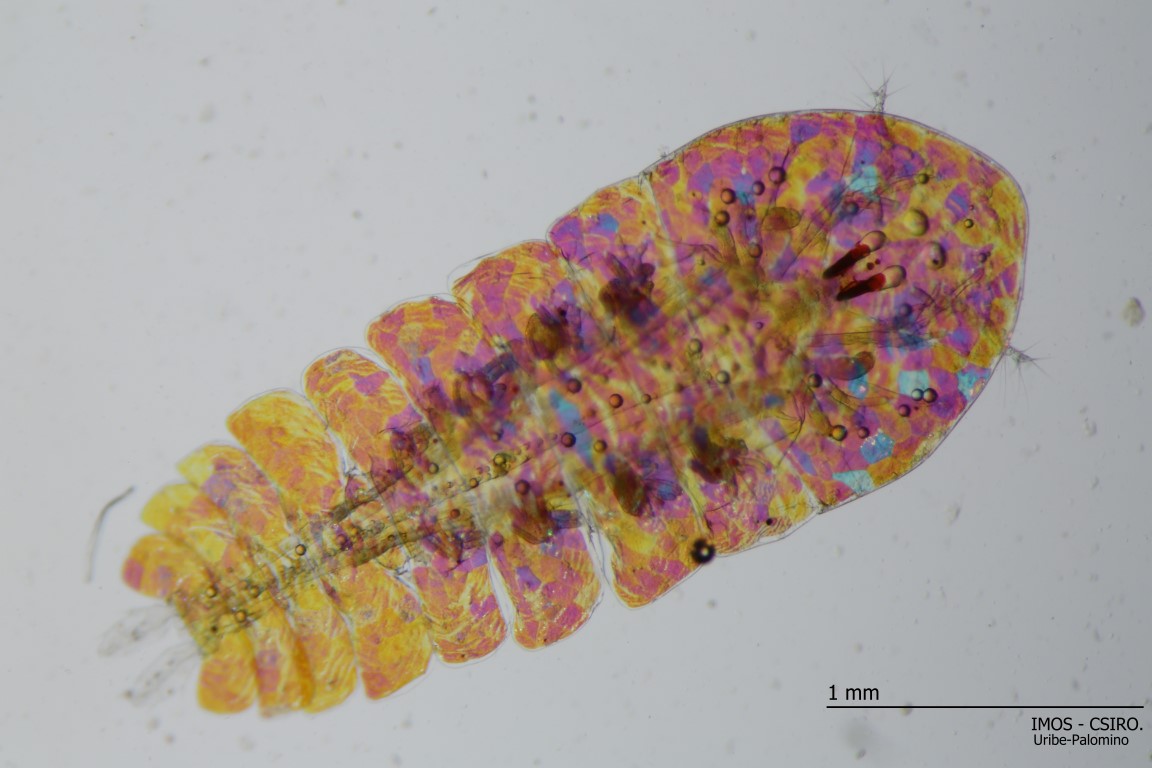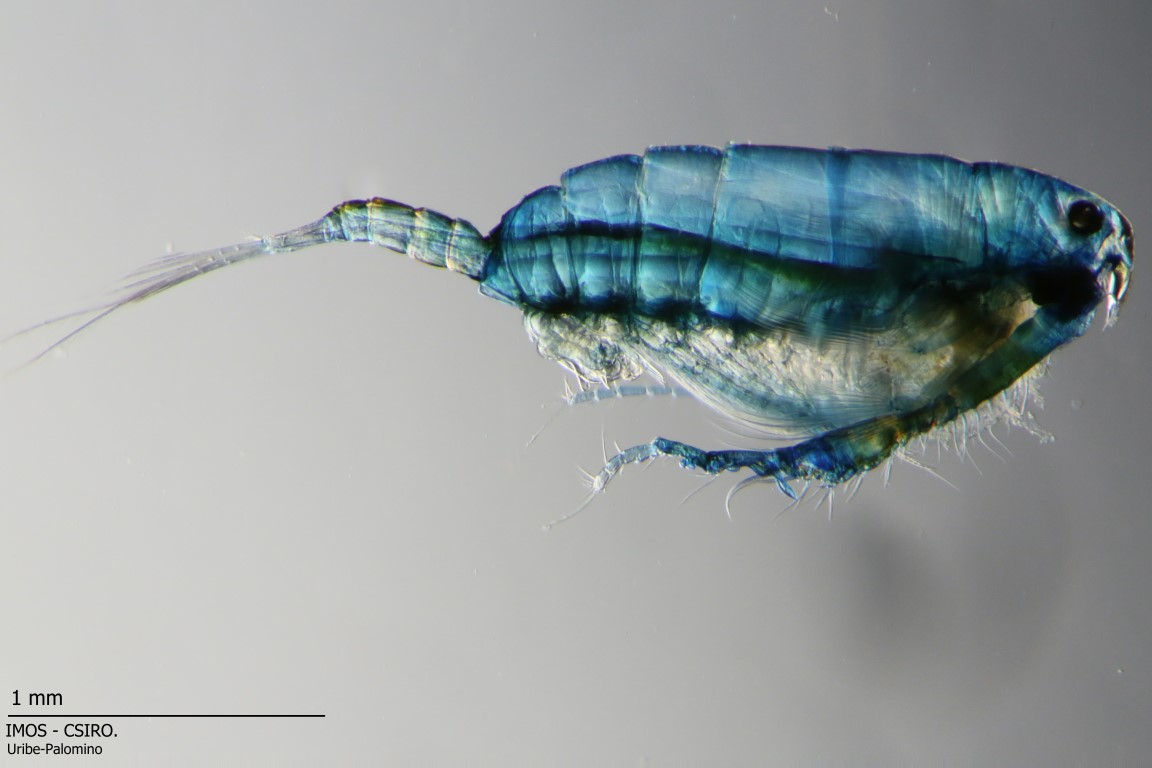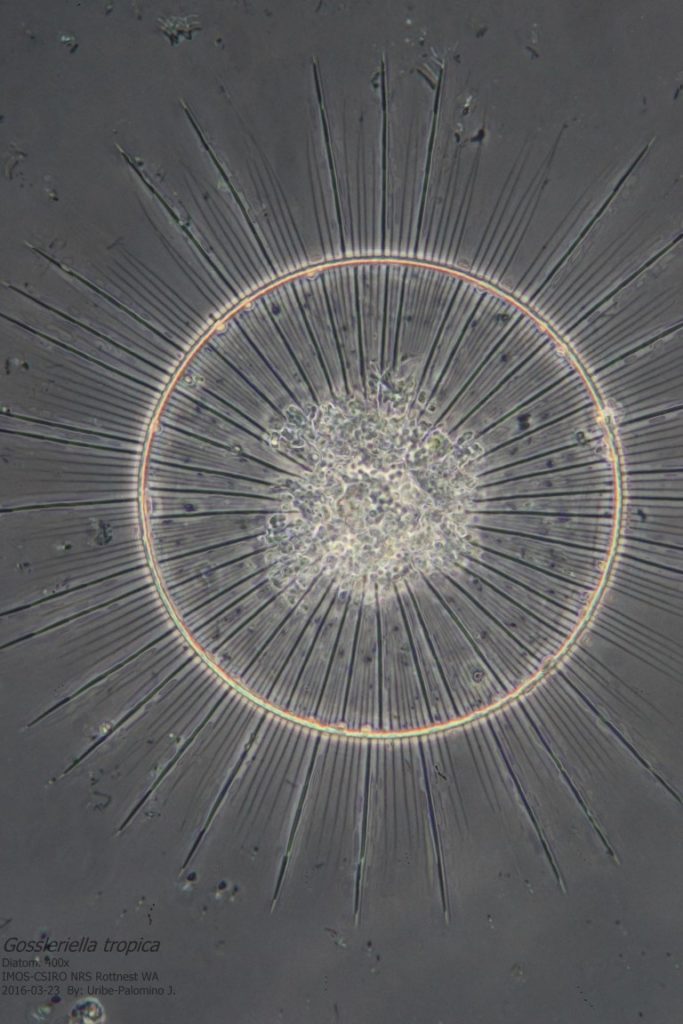They provide us with oxygen, they go with the flow and chances are you've probably swallowed some of them at the beach. This is our tribute to the humble plankton.

Zooplankton/Copepods are one of the multiple animal groups that make part of the Zooplankton. They are one of the most abundant organisms in the planet and they help to build different levels of the trophic web in aquatic ecosystems.
Although tiny, plankton play a critical part in our ocean ecosystem.
Imagine lying on your back in a calm blue ocean. You’re gently moving up and down with the rise and fall of the swell. Next thing you know a huge wave has crashed on your face and you’re staggering back to shore hacking up some salty sea water, cursing the fickle beast that is the ocean and feeling pretty sorry for yourself.
It’s at this point that we’d like you to stop and think of the dear plankton – for you might not know it, but you’ve probably just swallowed hundreds of these tiny critters (RIP plankton). You cannot see them, but they are instrumental in our survival, from providing the oxygen we breathe to giving us insight into the health of our oceans. We’d like to take this opportunity to have a chat with one of our expert plankton researchers Julian Uribe-Palomino, so we can write not the best blog in the world, but a tribute to the perfect plankton in our oceans.
The importance of plankton
They help us breathe: Did you know that phytoplankton are responsible for every second breath we take? In fact, they produce 50% of the oxygen we breathe. These plankton are found in the upper sunlit layers of the oceans, where they produce oxygen as a by-product of photosynthesis. So next time you’re feeling thankful for the air we breathe, give a shout-out to plankton.
They go with the flow: If you ever feel like you’re a bit Type A, maybe take a leaf out of the humble plankton’s book and try to ~go with the flow~.
“All plankton are drifters, in fact, everything that drifts in water with no capacity to swim against the currents are considered plankton. Even though plankton are mostly undetectable to our sight there are giant plankton. Some jellyfish, such as the lion’s mane jellyfish, can reach up to 2 meters in diameter and up to 36 meters in length when their tentacles are extended. It is almost as long as a blue whale!” says Julian.
And just because some plankton are incredibly tiny and invisible to the naked eye, it doesn’t mean that they don’t have important work to do – they’re a vital food source for many sea creatures and for us. Fish, prawns, mussels, squid and other animals that are part of our diet all start their life as plankton.

Zooplankton/Copepods are one of the multiple animal groups that make part of the Zooplankton. They are one of the most abundant organisms in the planet and they help to build different levels of the trophic web in aquatic ecosystems.
Zooplankton/Copepods are one of the multiple animal groups that make part of the Zooplankton. They are one of the most abundant organisms in the planet and they help to build different levels of the trophic web in aquatic ecosystems.
Plankton make great pals: Just like those cute-as-a-button videos about unlikely animal friendships, little algae plankton can form relationships with other sea life like giant clams and coral.
“They can live inside the tissue of the organism (corals, giant clams, and some jellyfish) and provide them with nutrients that they might be lacking in, this can be especially helpful to keep them healthy and full of colour.”
In fact, the tiny algae zooxanthellae live inside corals and provide most of the energy for corals to survive – without zooxanthellae there would be no Great Barrier Reef!
Sea sparkling plankton: Plankton are masters of camouflage, in fact many of them are literally invisible. For instance Ctenophores (comb jellies) are very transparent because they don’t want to be seen, however they also have a structure that reflects and scatters light, giving them a rainbow appearance to lure their prey closer.
Some plankton are bioluminescent, which is a chemical reaction that happens in many deep water plankton (in particular Noctiluca scintillans, more commonly known as sea sparkle). When the environmental conditions are just right, this tiny balloon-like algae reproduce so prolifically that they can illuminate a whole bay.
Insects of the ocean: Did you know that copepods, a particular group of animal plankton, are the most abundant organisms on the planet? In fact, you could say that they are the ‘insects’ of the oceans.
“Plankton keep all the traffic in the ocean moving, in fact our research confirms that without plankton, the Earth would be warmer and devoid of large fish and charismatic marine animals such as whales, manta rays, whale sharks or turtles ” says Julian.

Precious Plankton
We’ve known how precious our plankton are for quite a while, which is why we’re working to understand even more about these delightful critters. This is made possible through our work with the Australian Integrated Marine Observing System (IMOS), a national ocean observing system measuring the physical, chemical and biological environment. Using the data taken from IMOS we’re able to study climate change, ocean acidification, productivity of fisheries, biodiversity and ecosystem health.
You can find out more about these critical little critters here.


Pingback: Critical critters of the ocean: Our precious plankton – CSIROscope | Plant Health Solutions
14th June 2017 at 4:18 pm
In all my ocean cruising and coastal sailing and racing I’ve had lots of contact with Whales, Dolphin, Albatross, the lot but I have to admit my favourite is the extended Plankton family.
I’m a tree hugging Plankton lover. Man we are going to seriously miss them very soon as our oceans collapse into an acidic, irradiated, plastic infused carbonic soup.
So long and thanks for all the fish.